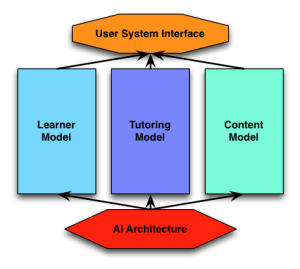I’m not immune to the current trends, I just tend to want to cut through the hype. Sometimes, there’s some ‘there’ there (to paraphrase Gertrude Stein). And, of course, most of the time it’s old wine in new bottles. Right now, the trend is ‘skilling’. Which, to me, raises the question: what, then, were you doing before ‘skilling’?
As context: I’d (mostly) gone the academic route. That is, doctorate, post-doc, academic position. For family reasons, I wanted to come back to the US, and took up a corporate position (a whole bunch of stories there, but not now…). I was excited, actually. Here, from science, we knew heaps! Yet we weren’t applying it in schools and higher ed, for pragmatic reasons like history and budget. However, industry would be different. They had real needs, and real money to address them. To quote my eldest, this was “going to be great”.
So, you might imagine my dismay as I came to realize that organizations weren’t spending money on learning. Somehow, learning was a cost. L&D took orders for courses, and expected that for a few thousand dollars, you could take PPTs and PDFs and make a course. That’s what the authoring systems portrayed, and workshops focused on. Still, at that time I wasn’t ready to look to see the bigger picture.
Regardless, I started lobbying for more learning science in what we do. I’ve railed against tools that don’t have different feedback for every wrong answer, pushed design tweaks to incorporate learning science into our processes, and written and spoken and worked to develop the necessary understanding. I co-authored the Serious eLearning Manifesto. I’ve supported and now co-direct the Learning Development Accelerator. I’ve written books!
Thus, hearing the recent call for ‘upskilling’ (with a variety of names and areas of focus) seems to me to be a bit silly. Of course we need to think about organizational directions and capabilities. We should be looking at directions and needs, and making decisions like ‘build or buy’, and when the answer’s ‘build’, we should do it right. We should look at performance consulting up front to make the right determinations, and then see if we’ve created an environment (social and technological) that means folks can get what the need. That could be from courses, job aids, learning resources, coaching/mentoring, the network internal or external, what have you.
Which begs my main question, what were you doing before hand? I know that ‘competency’ assessments were the thing many years ago, but those exercises were costly, time-consuming, and from what I understand, were out of date by the time they were done. Idiosyncratic approaches would be a tactical approach, but not strategic. Maybe strategy is something we’re late to? To be fair, I see more books about it emerging, from folks like Nigel Paine and forthcoming from Lori Niles-Hoffman, and of course I wrote about it about a decade ago.
We’ve got to get more systemic, where we haven’t been. We need to liaise with the relevant entities in our org, like talent, and knowledge management, and org development, etc. We need to work with IT to create an ecosystem, not just rely on one platform to meet all needs (metaphor: the Swiss Army knife is great on the go, but at home I have a richer suite of separate tools). I think it’s time we recognize what was wrong before skilling, and take what’s right and expand it. Let’s be a learning organization, master that, and take it forward. That’s what I think, what think you?
